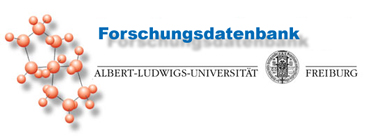| [Zurück zum Forschungsbericht] |
 |

Mind and Matter correlated in a Matrix
Projektbeschreibung:The aim of the project is to continue developing von Lucadou’s Correlation Matrix method (CMM). Four out of five CMM replications carried out by the applicant in the past two years, showed significant results. More experimental replications using new software and new variables are needed to improve and better understand the method. The Correlation Matrix Method, first developed by von Lucadou (1986c) and followed by Walach (2015), aims to contribute to the understanding of the replication problem and decline effect in the field of Parapsychology. The method explores Psychokinesis (PK) as a correlation happening between systems, namely, psychological (participant mental influence) and physical (Random number generator) systems. The correlation produced by these systems, according to the Model of Pragmatic Information (MPI) (von Lucadou, 1995) are hypothesized as non-local or entanglement manifestations of psi. Conventional Parapsychology adopts the traditional experimental paradigm to study paranormal phenomena, and justifies the phenomena as signals being caused by transference of signals. This approach has not helped the progress of the field due to the lack of replicability of parapsychological studies. However, CMM, predicts successful experimental replicability is possible whether the phenomena are not treated as a signal but instead as an entanglement correlation. CMM is important to test MPI theory, enlightening the replication problem in parapsychology, and ultimately the interaction or correlation between mind and matter. Previous experiments claimed successful results using this paradigm (Lucadou, Walach, Radin, Faul and Flores, in literature review). The novelty of CMM when compared with standard micro-PK experiments is, not to target the success rate, i.e, the expectation by chance, rather to create a correlation matrix of physical variables with psychological variables over experimental conditions creating a cell matrix with all data. Significant correlations will be highlighted showing their distribution during the experimental session. The matrix displays the correlations using a visual technique to facilitate the understanding of the data. The experimental matrix will be compared against the control matrix (random data) created by a random number generator using different techniques. This project, plans to improve previous studies by implementing a new software, a new random number generator (RNG), to execute a stricter data control and explore the statistical analysis, while replicating the original CMM protocol. A new software will be developed and validated before start collecting data. All studies will be pre-registered to increase their credibility and guarantee for quality. The new random number generator will be reengineered. Statistical analysis and production of random control data will be stricter and validated by external experts. The study will use physical variables from previous replications, though, the psychological variables will be independent. This is an improvement introduced to the analysis as previous studies dealt with analysis difficulties due to the dependency between the psychological variables, which was considered a weakness on the analysis. The CMM predicts that more significant correlations are produced when participant is performing the experiment compared to significant correlations produced during the control process. Different controls will be used. One control will use the same set-up with the participant data but running alone to create random data, no participant near the system. A second control will create a random 6/19 data set produced entirely by a RNG, and third control will be produced by a permutation method. All three controls will produce data to compare against the experimental data. This study plans to replicate the original experimental CMM protocol by instructing participants to mentally influence the behavior of a random number generator (RNG) according to the instruction given. Psychological data will be collected from questionnaires. Six studies are planned using different researchers, new set-up and diverse environments. The project is a continuation of the successful studies performed with contribution of grant 117/16, benefiting also from participation at International Consortium of experts supported by grant 400/14 where improvements to CMM were suggested and introduced by the applicant in her two last studies. Moreover, more suggestions resulting from the meeting should be taken and incorporated in new replication studies. The experience gained by the applicant in the last three years, completing her PhD in the CMM topic, gives a privileged position to a better and deeper contribution to the present study. Also, already liaise with the main group studying CMM. Specific aims The aim is to continue studying and improving von Lucadou’s Correlation Matrix Method by performing more six independent replication studies. This includes developing new software, introducing independent variables and new random number generator. The studies will test the model in differentsettingsProjektlaufzeit:
Ansprechpartner: Schmidt S
Projektbeginn: 01.02.2019Projektleitung:
Projektende: 30.12.2020
Schmidt SAktueller Forschungsbericht
Albert-Ludwigs-Universität Freiburg
Zentrum für Psychische Erkrankungen (Department)
Klinik für Psychosomatische Medizin und Psychotherapie
Hauptstrasse 8
79104 Freiburg
Telefon: +49 / 761 / 270-68060
Fax: +49 / 761 / 270-68850